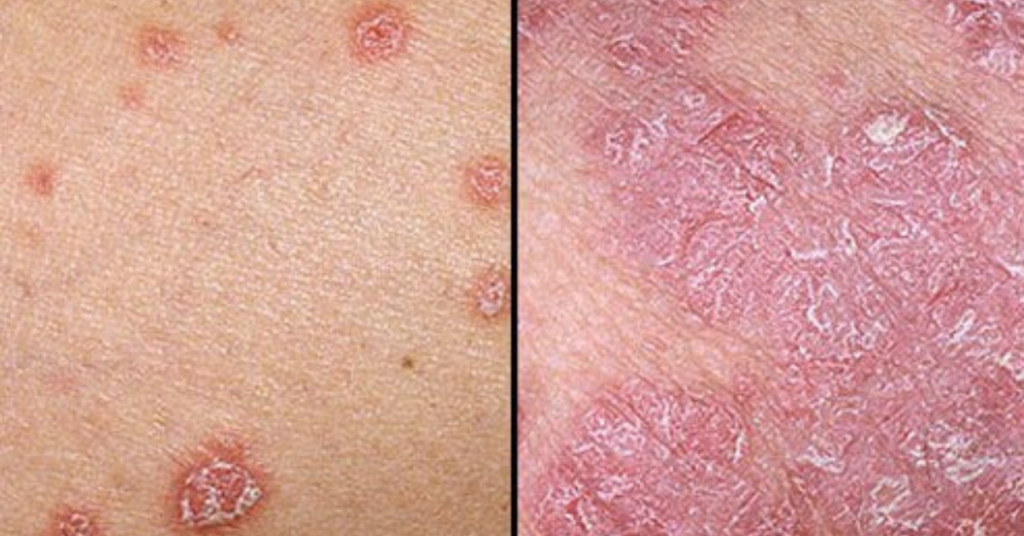Psoriasis is a non-infectious skin condition that produces red, dry plaques of thickened skin. The dry flakes and skin scales occur from the result of the rapid proliferation of skin cells triggered by irregular lymphocytes from the blood. It commonly affects the side of the elbows, knees and scalp, and can be more common in areas of abrasions, trauma and repeat rubbing.
Types of psoriasis
- Psoriasis vulgaris (common type)
- Guttate psoriasis (small, drop like spots)
- Inverse psoriasis (in the folds like of the underarms, navel, and buttocks)
- Pustular psoriasis (pus-filled, yellowish, small blisters)
- When the palms and the soles are involved, it is known as palmoplantar psoriasis
Psoriatic scales develop as thick, red patches and appear to be whitish-silver in texture. The condition causes inflammation and redness around these scales. Sometimes, these patches will crack and bleed.
Is Psoriasis contagious?
Psoriasis is an autoimmune condition. Autoimmune conditions are the result of the body attacking itself. In the case of psoriasis, white blood cells known as T cells mistakenly attack the skin cells. This means that psoriasis isn’t contagious i.e. it can’t spread from one person to another. It’s a result of a person’s own gene makeup.
Treatment
The best treatment is determined by the physician depending on the type of disease, severity, and the total body area involved. In mild cases where only small areas of the body are involved, creams, lotions and sprays can be very effective. For moderate to severe disease which involve much larger areas of the body, systemic (total body treatments such as pills or injections) medications or ultra-violet light treatments are performed.


